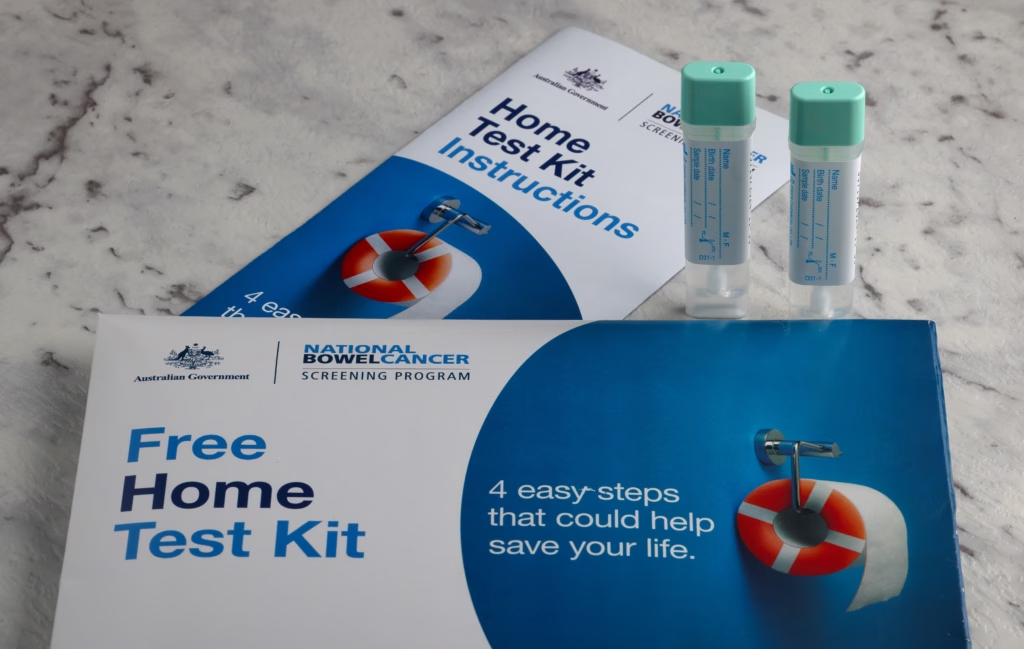Australia’s second deadliest cancer is bowel cancer.
Around 280 Australians are diagnosed every week, and the disease takes the lives of over 5,000 Australians every year.
Bowel cancer is also commonly known as both colon and rectum cancer, depending on where the cancer resides.
Most often, bowel cancer begins as benign polyps on the lining of the bowel. They are non-threatening and common, with anywhere between 15 to 40% of adults developing a polyp in their lifetime. Polyps can be without symptoms, but if they left undetected can develop into cancerous tumours.
June is Bowel Cancer Australia’s signature awareness and fundraising campaign to aid in prevention, detection, treatment, and research.
Conversations around bowel cancer are not as easy had as those of other cancers.
‘We want to make prevention of bowel cancer dinner table conversation,’ says Associate Professor Graham Newstead. ‘If you think about it there isn’t a woman who doesn’t chat to a female friend about having had their pap smear done or their mammogram done… people need to be aware bowel cancer occurs.’
According to Professor Newstead, this is the wrong mindset and needs to change. Especially with the ease of detecting bowel cancer early.
Through the efforts of advocacy groups and after successful pilot studies, in 2006 the Australian federal government introduced the National Bowel Cancer Screening Program which delivers free at-home screening kits to Australians aged 50 to 74. With the NBCSP, Australia has one of the most comprehensive national screening programs in the world.
In 2018, around 7% of participants, or 78,600 people, received a positive screening result. After follow-up examinations and colonoscopies, 251 were diagnosed with a confirmed bowel cancer, 1,432 with suspected bowel cancer, and 6,149 participants had detected adenomas. Men are less likely to participate in screening, though have higher rates of detected bowel cancers.
For more information about bowel cancer visit
www.bowelcanceraustralia.org
